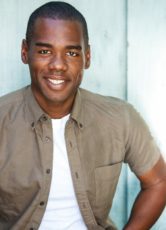
Getting a callback means someone who viewed your first audition tape was convinced you had a legitimate chance in landing the role. So feel encouraged and appreciated for what you have to offer!
Your work and overall essence was strong enough to create a connection with at least one of the professionals involved in the casting process. Now to the important task of making the most of the opportunity set before you.
Prepare
Before a race, a runner eats a specific diet, gets proper sleep, wears the proper clothes, stretches, warms up and zeros in on the task at hand mentally. When called to the running blocks, they’re ready to go.That’s similar to what actors do in preparing for competition for specific roles.
Before your callback date, you’ll want to do your homework. Try to find out as much information about the character, the commercial, the product or the director involved. Arming yourself with this new knowledge can both empower your performance and your ability to connect with the professionals in the room. Go over your lines and make sure you have a command of them. Your first-call reading was good enough to secure you a second chance, so you can repeat your performance approach, but take this opportunity to strengthen your first-call choices in ways you see fit. This is not the time to dedicate yourself to a whole new approach to the material. Dress in the same clothes you wore to the first call (or something very similar) unless you’ve been instructed to wear something different.
When you’re waiting in the lobby, don’t waste any time sizing up the other actors and assessing how you fit in. Instead, focus on your material, prepare to listen well to any direction you might soon receive and bolster your self-confidence in ways that you find most effective.
Even if you don’t feel confident, do all you can to act as if you are–even if it means practicing entering the room and greeting the casting professionals when you’re at home. Appearing to be confident puts the execs at ease and ready to absorb all you’ve got, so it’s important to view confidence–whether mock or genuine–as part of your act.
Make a connection
When you enter the audition room, expect to see any number of individuals including casting directors, producers, directors, commercial executives–among others. If they greet you warmly, that’s always wonderful; but, if they don’t, don’t take it personally. They may have just received notice that their budget was cut in half for all you know.
Those important-looking people who hold some power over your career are human beings just like you: they laugh, cry and get stressed out just like you. You may feel intimidated, but never lose sight of the fact that they want you to do well. Your good work reflects well upon them, and everyone in that room is trying to figure out what works best for the role at hand. You are one of them in this quest, and you are essential to the creative process.
Additionally, returning for a callback is another opportunity to display your professionalism and strengthen your relationships with each member of the casting panel. Enter the room with purpose, give eye contact and say hello as your natural, professional self–rather than in character right off the bat (eg. If you’re auditioning for the role of a criminal, you don’t want to frighten everyone in the room; and if you’re portraying the part of a ditzy character, you don’t want them to think that’s really who you are). Enter as yourself, then proceed to take a brief moment to get into character. When you’re ready to roll, look directly at the casting professionals. This is your cue to them that you are now ready to go.
Your performance
As mentioned, your first-call performance was good enough for them to invite you back, so it’s a good idea to stick with what’s working. But it’s also important to remain flexible. The casting director might want to work with you in more depth, so be ready to listen for direction. Many times the execs like your current take on the role, but want to see how you respond to direction. They might want to see how flexible you are as an actor, and get a better sense of who you are as a person.
That being said, don’t expect to receive direction. And it’s probably best not to ask for it either; it might be construed that you don’t think they’re doing their job. Whoever is reading with you, if anyone is, make sure to engage completely with that person during your read.
Be ready for anything. Audition rooms can be highly unpredictable. And keep in mind, taking risks with the material might be what distinguishes you from the competition in a positive way. If your gut is telling you to break away from your first-call approach, and you feel compelled to take a risk, make sure to give your actions and manner of speech a personal touch. Make it your own. But if you choose to go distinctly more bold or more subtle, for example, make sure to assess the casting director’s reaction. Be prepared to make adjustments, but don’t apologize for your choices., Take responsibility for the decisions you make and keep moving forward.
Remember, it’s your work that’s being critiqued–not you. You’re welcome to be there. You’re among a small group of actors who were specifically invited to audition again. They are drawn to you. If one approach doesn’t work, and you have another chance, take a breath and center yourself before moving on.
When the audition ends, give the casting panel eye contact, and thank them before leaving. You’ve done your job, and you can feel good about that. Avoid judging yourself after it’s over. Learn what you can from the experience, but then move on. You might book the job; but if not, you still will have made a positive impact with the professionals in the room, which can increase your chances in being called back for future roles.
Want to get your acting career started? Sign up or login to Casting Frontier and start auditioning today!
Related articles:
Audition Do’s and Dont’s
The Callback vs. The Shoot
Booking Without a Callback




